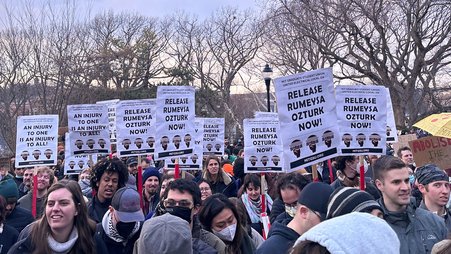Almost four months into the Israel-Gaza war, the grim death toll of journalists, among other civilians, continues to grow. The international press still is shut out of Gaza.
Freedom of the Press Foundation Deputy Director of Advocacy Caitlin Vogus spoke to The Grass is Greener on radio station WXRW in Milwaukee, Wisconsin, about the abysmal state of press freedom in Gaza and what the Biden administration must do to pressure Israel to safeguard reporters’ lives and the public’s right to know about the war.
As Vogus explained:
Journalists … play an integral role in documenting war crimes, in documenting human rights violations, in documenting even legitimate military action. Protecting journalists in Gaza and allowing the press access to Gaza is important not just because we think it’s required by international human rights law, but also because it protects the world’s right to know about what’s happening there and to document all of those stories that otherwise we would never find out about.
The Grass is Greener also spoke to Clayton Weimers, executive director of Reporters Without Borders USA. Weimers discussed RSF’s recent investigations regarding the potential targeting of journalists in the war, and Israel’s and the United States’ records on press freedom.
Listen to the whole interview here.




